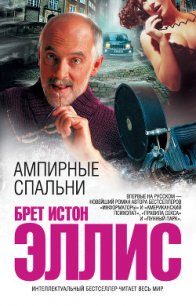High Rise - Ballard James Graham (читать бесплатно полные книги txt) 📗
11. Punitive Expeditions
By four o'clock that afternoon the last of the residents had returned to the high-rise. From his balcony Laing watched their cars appear on the approach roads and turn into their spaces in the parking-lot. Briefcases in hand, the drivers made their way to the entrance lobbies. Laing was relieved that all conversation ended when they neared the building. This civilized behaviour in some way unsettled him.
Laing had rested during the afternoon, deciding to calm himself and gather his strength for the night to come. At intervals he climbed over the barricade and peered into the corridor, hoping to catch sight of Steele. Laing's concern for his sister, only three floors below with her twilight husband, made him increasingly restless. He needed an outbreak of violence to provide a pretext to rescue her. If the plan to divide the building succeeded, he would be unlikely to see her again.
Laing paced around the apartment, testing the primitive defensive preparations. Those residents like himself on the upper floors were more vulnerable than they assumed, and might easily find themselves at the mercy of those on the lower levels. Wilder and his henchmen could easily block the exits, destroy the electrical and water-supply inputs, and set fire to the upper floors. Laing imagined the first flames climbing through the elevator shafts and staircases, floors collapsing as the terrified residents were driven to find refuge on the roof.
Unsettled by this lurid vision, Laing disconnected his stereo-speakers and added them to the barricade of furniture and kitchen appliances. Records and cassettes lay about underfoot, but he kicked them out of his way. At the base of his bedroom wardrobe he prised away the floorboards. In this suitcase-sized cavity he hid away his cheque book and insurance policies, tax returns and share certificates. Lastly, he forced in his medical case with vials of morphine, antibiotics and cardiac stimulants. When he nailed the floorboards back into place he felt that he was sealing away for ever the last residues of his previous life, and preparing himself without reservation for the new one to come.
On the surface, the apartment building remained quiet, but much to Laing's relief the first incidents broke out by the early evening. He waited in the lobby through the late afternoon, standing about with a group of his fellow residents. Perhaps, insanely, nothing was going to happen? Then a foreign-affairs analyst arrived with the news that there had been a fierce scuffle over an elevator ten floors below. Adrian Talbot, the likeable psychiatrist on the 27th floor, had been drenched in urine as he climbed the stairs to his apartment. There was even a rumour that a 40th-floor apartment had been vandalized. Such an act of provocation guaranteed them all a hot night.
This was followed by a spate of reports that many residents had returned home to find their apartments ransacked, furniture and kitchen equipment damaged, electrical fittings torn out. Oddly enough, no food supplies had been touched, as if these acts of vandalism were deliberately random and meaningless. Had the damage been inflicted by the owners themselves, without realizing what they were doing, in an attempt to bring about an increase in violence?
These incidents continued as the evening settled over the apartment building. From his balcony Laing could see torch-beams flicking to and fro in the windows of the eight blacked-out floors below, as if signalling the preparations of a brutal blood-rite. Laing sat in the darkness on the living-room carpet, his back against the reassuring bulk of the barricade. He was reluctant to switch on the lights, for fear-absurdly, as he knew-that an assailant might attack him from the air outside his balcony. Drinking steadily from a hip-flask of whisky, he watched the early evening television programmes. He turned down the sound, not out of boredom with these documentaries and situation comedies, but because they were meaningless. Even the commercials, with their concern for the realities of everyday life, were transmissions from another planet. Squatting among the plastic garbage-sacks, his furniture piled up behind him, Laing studied these lavish reconstructions of housewives cleaning their immaculate kitchens, deodorants spraying well-groomed armpits. Together they formed the elements of a mysterious domestic universe.
Calm and unfrightened, Laing listened to the strident voices in the corridor. Thinking about his sister, he welcomed these signs of the violence to come. Alice, always fastidious, would probably be repelled by the derelict state of the apartment, but it would do her good to find something to criticize. The sweat on Laing's body, like the plaque that coated his teeth, surrounded him in an envelope of dirt and body odour, but the stench gave him confidence, the feeling that he had dominated the terrain with the products of his own body. Even the prospect that the lavatory would soon be permanently blocked, something that had once filled him with polite dread, was now almost inviting.
This decline in standards of hygiene Laing shared with his neighbours. Emitted from their bodies was a strong scent, the unique signature of the high-rise. The absence of this odour was what most unsettled him about the world outside the apartment block, though its nearest approximation was to be found in the dissecting-room at the anatomy school. A few days earlier Laing had caught himself hanging about his secretary's desk, trying to get close enough to her to detect this reassuring smell. The startled girl had looked up to find Laing hovering over her like a beachcomber in rut.
Three floors above, a falling bottle burst across a balcony. The glass fragments spat away like tracers through the darkness. A record-player by an open window was turned up to full volume. Huge fragments of amplified music boomed into the night.
Laing climbed around his barricade and unlocked the door of his apartment. In the elevator lobby a group of his neighbours were manhandling a steel fire-door across the entrance to the stairway. Five floors below, a raid was in progress. Laing and his fellow clansmen crowded against the fire-door, peering into the darkened stairwell. They could hear the elevator gear reverberating as the car moved up and down, ferrying more attackers to the fray. Rising from the 20th floor, as if from an execution pit, came a woman's scream.
Waiting for Steele to appear and help them, Laing was about to go in search of him. But the lobby and corridors were filled with running people, colliding into each other in the dark as they fought their way back to their apartments on the floors above the 25th. The raiders had been hurled back. Torch-beams swerved across the walls in a lunatic semaphore. Laing slipped in a pool of grease and fell among the swerving shadows. Behind him, an excited woman stepped on his hand, her heel cutting his wrist.
For the next two hours a series of running battles took place in the corridors and staircases, moving up and down the floors as the barricades were reassembled and torn down again. At midnight, as he crouched in the elevator lobby behind the overturned fire-door, debating whether to risk making a run for Alice's apartment, Laing saw Richard Wilder standing among the scattered steel chairs. In one hand he still held his cine-camera. Like a large animal pausing for breath, he followed the huge projections of himself cast upon the walls and ceiling, as if about to leap on to the backs of his own shadows and ride them like a troupe of beasts up the flues of the building.
The confrontation subsided, moving away like a storm towards the lower floors. Laing and his neighbours assembled in Adrian Talbot's apartment. Here they sat on the living-room floor among the broken tables and the easy chairs with their slashed cushions. The torches at their feet formed a circle of light, shining on the bottles of whisky and vodka they shared together.
Arm in a sling, the psychiatrist moved around his vandalized apartment, trying to hang the shattered picture-frames over the slogans aerosolled across his walls in the supermarket paint-section's most fashionable colours. Talbot seemed more numbed by the personal hostility in these anti-homosexual obscenities than by the wholesale destruction of his apartment, but in spite of himself Laing found them stimulating. The lurid caricatures on the walls glimmered in the torch-light like the priapic figures drawn by cave-dwellers.
"At least they've left you alone," Talbot said, crouching beside Laing. "I've obviously been picked out as a scapegoat. This building must have been a powerhouse of resentments-everyone's working off the most extraordinary backlog of infantile aggressions."
"They'll spend themselves."
"Perhaps. I had a bucket of urine thrown over me this afternoon. Much more of that and I may take up a cudgel myself. It's a mistake to imagine that we're all moving towards a state of happy primitivism. The model here seems to be less the noble savage than our un-innocent post-Freudian selves, outraged by all that over-indulgent toilet-training, dedicated breast-feeding and parental affection-obviously a more dangerous mix than anything our Victorian forebears had to cope with. Our neighbours had happy childhoods to a man and still feel angry. Perhaps they resent never having had a chance to become perverse…"
As they nursed their bruises and passed around the bottles, drinking steadily to build up their courage, Laing listened to the talk of counter-attack and revenge. There was still no sign of Steele. For some reason Laing felt that he should have been there, a future leader more important to them than Crosland. In spite of his injuries, Laing felt exhilarated and confident, eager to return to the fray. The darkness was reassuring, providing its own security, the natural medium of their life in the apartment building. He felt proud of having learned how to move around the pitch-black corridors, never more than three steps at a time, how to pause and test the darkness, and even the right way of crossing his own apartment, always keeping as close to the floor as possible. He almost resented the daylight which the following morning would bring.
The true light of the high-rise was the metallic flash of the polaroid camera, that intermittent radiation which recorded a moment of hoped-for violence for some later voyeuristic pleasure. What depraved species of electric flora would spring to life from the garbage-strewn carpets of the corridors in response to this new source of light? The floors were littered with the blackened negative strips, flakes falling from this internal sun.



